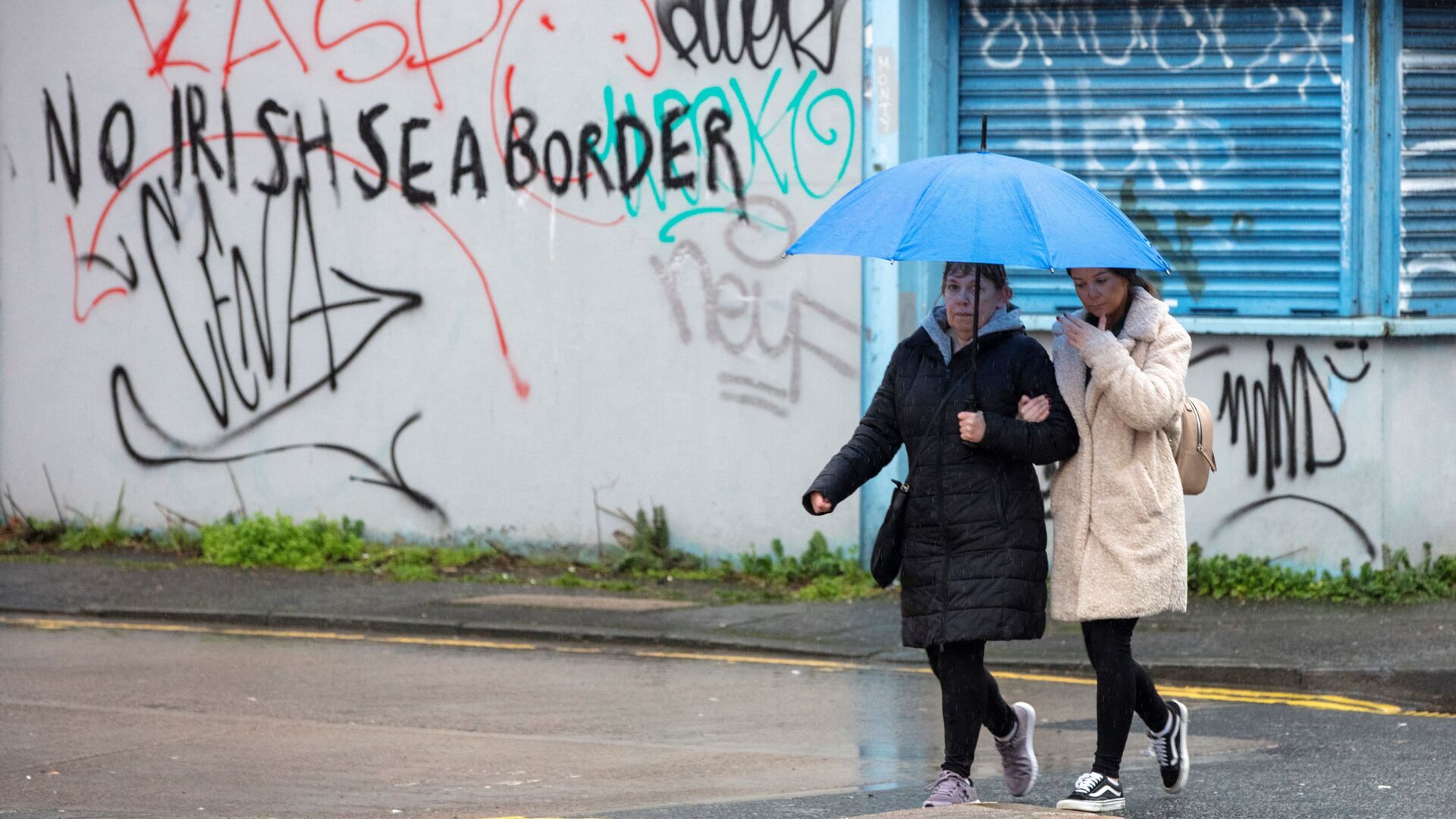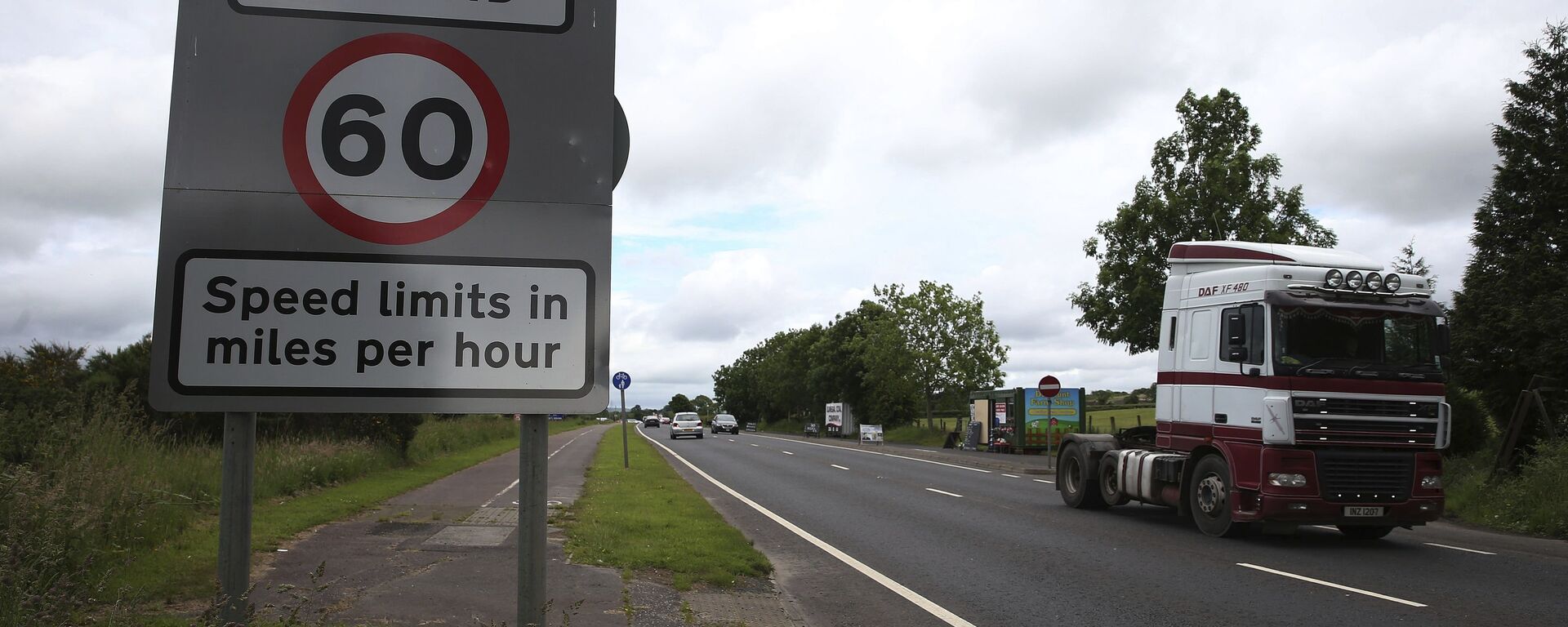https://sputnikglobe.com/20220510/german-chancellor-scholz-rules-out-deal-with-uk-on-northern-ireland-protocol-1095401322.html
German Chancellor Scholz Rules Out Deal with UK on Northern Ireland Protocol
German Chancellor Scholz Rules Out Deal with UK on Northern Ireland Protocol
Sputnik International
Downing Street has mooted invoking Article 16 of the protocol, which allows either side to make temporary changes to the agreement if it causes unforeseen... 10.05.2022, Sputnik International
2022-05-10T12:39+0000
2022-05-10T12:39+0000
2022-05-10T13:22+0000
olaf scholz
northern ireland protocol
democratic unionist party (dup)
sinn fein
brexit
https://cdn1.img.sputnikglobe.com/img/07e5/09/04/1083797952_0:130:3181:1919_1920x0_80_0_0_c6c20449c6e8b23ff81cc42323804ff0.jpg
German Chancellor Olaf Scholz has said the European Union will not agree any changes to the post-Brexit agreement with the UK on trade in Northern Ireland.Belgian Prime Minister Alexander De Croo, also present at the press conference, added: "Our message is quite clear. Don't touch this, this is something we agreed on."The row over the Northern Ireland Protocol to the EU Withdrawal Agreement has been rumbling on since last year. British Prime Minister Boris Johnson and unionist parties are unhappy over tariff barriers between the mainland UK and Northern Ireland and bans on the sale of British-produced sausages and other 'chilled meats', along with potted plants.Downing Street has mooted invoking Article 16 of the protocol, which allows either side to make temporary changes to the agreement if it causes unforeseen problems with trade.Contrary to popular belief, Article 16 is not a self-destruct clause for the agreement. In fact it requires both Britain and the EU to enter talks to resolve the dispute with the aim of returning to the agreement.The withdrawal agreement kept Northern Ireland within the EU's Common Market on the pretext of avoiding a "hard border" with the Republic of Ireland. The Dublin government and opponents of Brexit argued that would constitute a breach the 1999 Good Friday Agreement that ended the conflict in Northern Ireland, which guarantees free movement within the partitioned island.Republican party Sinn Fein, a former opponent of Ireland's membership of the EU which now opposes Brexit, became the biggest party in the Northern Ireland Assembly after last Thursday's elections with 27 seats out of 90. Party leader Mary Lou McDonald is now set to become first minister in the devolved regional government.But unionist parties and independents have a slight edge over Republicans overall. The Democratic Unionist Party (DUP) holds 25 seats and the Ulster Unionist Party (UUP) nine, while the newer Traditional Unionist Voice kept its one seat and two independent Unionist MLAs were elected for a total of 37.The Republican Social Democratic and Labour Party's eight seats brings the traditional Republican total to 35.The DUP has refused to enter the customary power-sharing administration unless the protocol is abolished, a move that the Stormont assembly can make with a majority vote.The balance of seats are held by the "cross-community" Alliance Party with 17 and the left-wing Eurosceptic People Before Profit (PBP) with one. The Alliance opposed Brexit and has defended the protocol.
https://sputnikglobe.com/20220508/dominic-raab-claims-stability-at-risk-in-warning-to-eu-as-sinn-fein-wins-big-in-northern-ireland-1095346940.html
Sputnik International
feedback@sputniknews.com
+74956456601
MIA „Rossiya Segodnya“
2022
James Tweedie
https://cdn1.img.sputnikglobe.com/img/07e4/08/1c/1080307270_0:3:397:400_100x100_80_0_0_7777393b9b18802f2e3c5eaa9cbcc612.png
James Tweedie
https://cdn1.img.sputnikglobe.com/img/07e4/08/1c/1080307270_0:3:397:400_100x100_80_0_0_7777393b9b18802f2e3c5eaa9cbcc612.png
News
en_EN
Sputnik International
feedback@sputniknews.com
+74956456601
MIA „Rossiya Segodnya“
Sputnik International
feedback@sputniknews.com
+74956456601
MIA „Rossiya Segodnya“
James Tweedie
https://cdn1.img.sputnikglobe.com/img/07e4/08/1c/1080307270_0:3:397:400_100x100_80_0_0_7777393b9b18802f2e3c5eaa9cbcc612.png
olaf scholz, northern ireland protocol, democratic unionist party (dup), sinn fein, brexit
olaf scholz, northern ireland protocol, democratic unionist party (dup), sinn fein, brexit
German Chancellor Scholz Rules Out Deal with UK on Northern Ireland Protocol
12:39 GMT 10.05.2022 (Updated: 13:22 GMT 10.05.2022) Downing Street has mooted invoking Article 16 of the protocol, which allows either side to make temporary changes to the agreement if it causes unforeseen problems with trade. The withdrawal agreement kept Northern Ireland within the EU's Common Market on the pretext of avoiding a "hard border" with the Republic of Ireland.
German Chancellor Olaf Scholz has said the European Union will not agree any changes to the post-Brexit agreement with the UK on trade in Northern Ireland.
"No one should unilaterally scrap or break or in any way change the arrangement we agreed on together," Scholz told reporters in Berlin.
Belgian Prime Minister Alexander De Croo, also present at the press conference, added: "Our message is quite clear. Don't touch this, this is something we agreed on."
The row over the Northern Ireland Protocol to the EU Withdrawal Agreement has been rumbling on since last year.
British Prime Minister Boris Johnson and unionist parties are unhappy over tariff barriers between the mainland UK and Northern Ireland and bans on the sale of British-produced sausages and other 'chilled meats', along with potted plants.
Downing Street has mooted invoking Article 16 of the protocol, which allows either side to make temporary changes to the agreement if it causes unforeseen problems with trade.
Contrary to popular belief, Article 16 is not a self-destruct clause for the agreement. In fact it requires both Britain and the EU to enter talks to resolve the dispute with the aim of returning to the agreement.
The withdrawal agreement kept Northern Ireland within the EU's Common Market on the pretext of avoiding a "hard border" with the Republic of Ireland. The Dublin government and opponents of Brexit argued that would constitute a breach the 1999 Good Friday Agreement that ended the conflict in Northern Ireland, which guarantees free movement within the partitioned island.
Republican party Sinn Fein, a former opponent of Ireland's membership of the EU which now opposes Brexit, became the biggest party in the Northern Ireland Assembly after last Thursday's elections with 27 seats out of 90. Party leader Mary Lou McDonald is now set to become first minister in the devolved regional government.
But unionist parties and independents have a slight edge over Republicans overall. The Democratic Unionist Party (DUP) holds 25 seats and the Ulster Unionist Party (UUP) nine, while the newer Traditional Unionist Voice kept its one seat and two independent Unionist MLAs were elected for a total of 37.
The Republican Social Democratic and Labour Party's eight seats brings the traditional Republican total to 35.
The DUP has refused to enter the customary power-sharing administration unless the protocol is abolished, a move that the Stormont assembly can make with a majority vote.
The balance of seats are held by the "cross-community" Alliance Party with 17 and the left-wing Eurosceptic People Before Profit (PBP) with one. The Alliance opposed Brexit and has defended the protocol.



